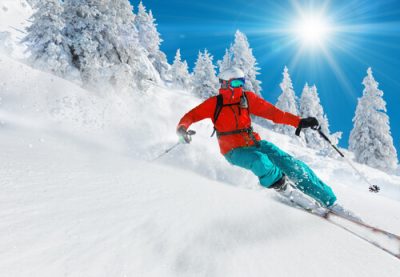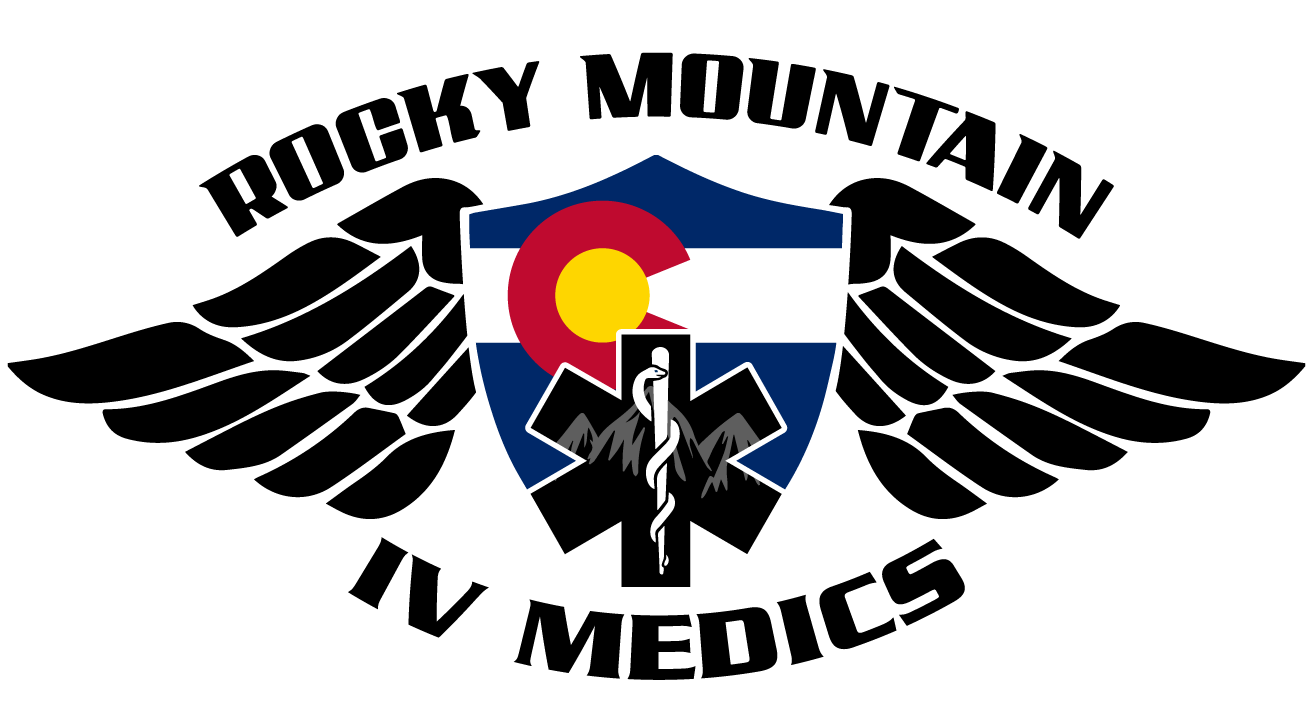How to Recover After Skiing with IV Therapy

How IV Therapy Helps with IBS
January 28, 2022
How Magnesium Infusion Improves Depression and Anxiety
February 28, 2022How to Recover After Skiing with IV Therapy

There’s nothing like a day on the slopes skiing in Colorado. The runs here are simply majestic, from the Highland Bowl at Aspen Highlands to the Whale’s Tail at Breckenridge Ski Resort. You could spend an entire day snowboarding or skiing and never get tired of the thrilling beauty and pristine powder of Colorado’s mountain ranges.
You may, however, get plain tired. Skiing and skateboarding are demanding sports that can take a lot out of you. Navigating the slopes requires speed, stamina, and strength—and that can leave you exhausted after your final run. If you don’t take care of yourself, you may run the risk of injury or miss out on prime ski days while you’re recuperating.
Learn how to recover from skiing so you can make the most out of all Colorado has to offer.
Why Are Legs Sore After Skiing?
You killed it on the runs at Beaver Creek or Copper Mountain. But now it feels like you can barely move. Your legs are doing most of the work when skiing or snowboarding, so it’s not surprising that your legs are feeling the brunt of your body’s aches and pains.
This is because your leg muscles work differently going downhill than they do, say, running uphill or cycling on a track. Your muscles and joints bear down while skiing and snowboarding in order to carve turns or slow down on a tricky part of a run. The force of going downhill creates tremendous pressure, and your muscles are challenged accordingly. Plus, you’re often in a squatting position while skiing, and that calls on all the major leg muscle groups.
Of course, apres-ski soreness may not be limited to the legs. The lower back and core do their fair share of work, and you may feel the burn in those areas, too. And if bombing a run results in an epic fall, you can suffer pain in the arms and shoulders.
Snowboarding and skiing injuries are also a risk. And that risk can increase if you’re overexerting yourself or not taking care of your body. Common skiing injuries include:
- Knee injuries caused by torn or sprained ligaments
- Broken leg bones
- Sprained ankles
- Dislocated shoulders
- Strained back muscles
- Sprained or fractured wrists
When you use some smart strategies to recover from skiing and snowboarding, you not only feel better, but you also lower your risk of injury.
How to Prevent Skiing Injuries
Don’t cut your ski vacation short. Try these tips to help safeguard against common skiing injuries so you can get back on the slopes the next day.
Stretch Before and After Skiing
Like any workout, stretching for skiing soothes the muscles. Warm-up your muscles before heading out for the day so you feel a little more limber. And be sure to stretch at the end of the day, too. Focus on the muscles that you use the most in skiing: hamstrings, quads, glutes, lower back, and calf muscles.
Cool Down with Gentle Exercise
Bring down your heart rate and give your muscles a chance to relax after skiing. A short walk around the ski resort is a good way to transition out of a day of high-intensity exercise. You can also do some yoga, which gives you an extra opportunity to stretch your muscles.
Don’t Go Out Hard on Day One
As tempting as it is to tackle Pallavicini at Arapahoe Basin first thing in the morning, save the double black diamond runs for day two of your ski trip. When your body hasn’t gotten used to the movement demands of skiing, jumping into a challenging run right away can heighten the risk of skiing injuries.
Use Hot and Cold Treatments
Warming treatments increase oxygen and blood flow to muscles, while cold ones ease inflammation that heightens soreness. A quick dip in a hot tub or visit to a sauna is super relaxing after skiing, but you can also try a cool bath or ice packs to target trouble spots. Try alternating a few minutes in the hot tub with a few more minutes in a cold bath, and then soak again in the hot tub.
Rub Out Aches and Pains
Treat yourself to a deep-tissue massage designed to eliminate muscle tension and support a tired body. As with stretching, have the massage therapist target problem areas like the legs and lower back. Not staying at a resort that offers massages? Pack a foam roller for self-massage instead.
Stay Hydrated
Dehydration drags you down, plain and simple. You can experience headaches, lightheadedness, fatigue, and other symptoms that make it hard to ski or snowboard. Drink water, sports drinks, and other hydrating fluids throughout the day, taking breaks between runs to rehydrate.
However, sometimes you need a little extra help to recover from skiing. That’s when you can call on Rocky Mountain IV Medics for IV therapy at your home or hotel room.
How IV Therapy Can Get You Back on the Mountain Faster
IV therapy is great for anyone who loves skiing in Colorado:
- It’s fast and effective: IV infusions deliver fluids with vitamins and minerals right to the bloodstream for maximum absorption. This means IV therapy kicks in faster than oral medications that first pass through the digestive system.
- IV therapy rehydrates: IV fluids contain electrolytes that help your body’s fluid levels rebalance, so it eases the symptoms of dehydration.
- You can reduce the intensity of muscle cramps: Zinc is a common IV ingredient that helps with muscle cramps. You can get zinc in the popular Myers’ Cocktail IV or include it as an add-in with another IV treatment.
- It eases altitude sickness symptoms: As a bonus, IV therapy helps when the majesty of the mountains gets too heady for you. Try it to alleviate dizziness, headaches, or nausea and vomiting.
Need help to recover from skiing? Contact Rocky Mountain Medics and try one of our powerful IV therapy packages today.
Book Your IV Therapy Today
An NAD+ IV from Rocky Mountain IV Medics is one of the best ways to treat sourness at home. We have service areas throughout Colorado, plus affordable prices and VIP deals. To find anxiety symptom relief, contact us or schedule your IV therapy online.

